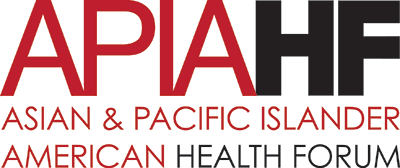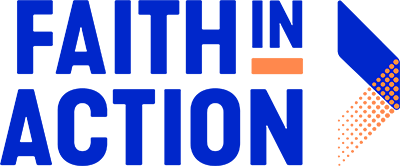As our nation faces a national emergency with profound health and economic impacts, long-standing inequities, rooted in our history and structural racism, have come under a glaring light. Our nation is at a point where racial equity must be at the forefront by our government — as both a commitment and by taking tangible steps.
President-elect Joseph R. Biden has recognized “with horrifying clarity the cost of systemic racism.1” across institutions and sectors in the United States. In response to the stark inequities painfully surfaced by the COVID-19 pandemic and the national reckoning on racial justice in the wake of the murder of George Floyd, he has committed to “racial equity as a distinct pillar of his Build Back Better plan.”2 Today,
- Black and Latino communities have suffered almost three times as many deaths to COVID-19 as white communities.3
- Pacific Islanders are experiencing higher rates of hospitalizations and death in numerous states4, and Cambodians are considered among those of highest mortality risk because of overcrowded housing and intergenerational living, employment as essential workers and elevated rates of underlying conditions such as diabetes, post-traumatic stress disorder and hypertension.5 Asian Americans, Native Hawaiians and Pacific Islanders are facing dual crises — disproportionately impacted by the COVID-19 pandemic and experiencing rising hate crimes as a result.
- Black, Asian6 and Latino unemployment rates have soared to about 15% as the economic crisis grows and persists. Native employment is mirroring the impact of the great recession and lagging far behind Black and white rates.7
- The Navajo Nation has entered its second lockdown and is experiencing a “dire” surge8
- Black and Latino businesses are closing at alarming rates
- Hate crimes have risen to their highest level in more than a decade during 20199
- Racial disparities were already present across every indicator of well-being, from wealth, to housing, to health, to education. And are being detrimentally exacerbated by the economic and health impacts of COVID-19.
Current conditions for Black, Latino, Asian American, Native Hawaiian, Pacific Islander, American Indian and Alaska Native communities emerge out of generations of systemic racism, a multitude of lifetimes of limited opportunities and the weight of historical injustice. Given that government has played a key role in creating these conditions, it must make racial equity a fundamental component of its operations, policy, and practice to change them.
As noted by the Center for American Progress, this calls for “a full-scale intentional and strategic plan that reaches across the entire federal government and puts in place actual infrastructure to tackle racial inequality.”10 And, The Leadership Conference on Civil and Human Rights notes, “In this new era, we have the opportunity to move beyond the status quo to address the root causes of racial and gender inequity.”11
We recommend a White House Office on Racial Equity and Inclusion to coordinate the full range of federal agency efforts towards these ends.
As racial equity organizations representing and serving upwards of 53 million people through approximately 2,800 partners/chapters/affiliates and 650 affiliated tribes or tribal entities in every state in the U.S., we are well-situated to advise and assist in implementation of our recommendation. The Collaborative represents Black, Latino, American Indian and Alaska Native, Asian, Native Hawaiian, Pacific Islander, and multiracial communities. We have unrivaled networks of allies and grassroots movement builders and contributors that we can bring to bear for our collective racial equity goals.
Offices on racial equity have become common in local government jurisdictions and there is a wealth of experience and lessons learned to draw from to inform a White House Office on Racial Equity. In, 2005 the City of Seattle established its Race and Social Justice Initiative, initiating a trend in local government that has led hundreds of jurisdictions committing to a vision of racial equity that:
- Normalizes the work of addressing systemic racism,
- Operationalizes racial equity in government operations, practice, and policy, and
- Creates permanent infrastructure to build capacity and sustain racial equity effort across entire institutions, in partnership with communities.12
Today the Government Alliance on Race and Equity (GARE) has upwards of 280 members, and a significant number of jurisdictions not formally part of GARE have also adopted its model. A White House Office on Racial Equity should embrace this approach.
A White House Office on Racial Equity should be afforded visibility, access, and influence to meets its ambitious goal: transforming federal government towards advancing racial equity. The Office should have direct reports to the heads of all federal agencies, and the power to convene an Inter-Agency Working Group on Racial Equity. In addition, it may include a National Advisor to the President on Racial Equity, Justice and Advancement as recommended by the NAACP.
Advancing racial equity requires sustained commitment and institutional infrastructure. Racial equity core teams in government are a demonstrated model for effective infrastructure. Core teams bring together diverse actors from different parts of agencies, representing different aspects of an agency’s operations to collaborate and create institution-wide change that effectively advances racial equity across the agency’s mandate and work.
A White House Office on Racial Equity should be empowered to:
1. Develop a racial equity vision in collaboration with civil society for the Administration.
The Administration’s vision for equity should be clear, transparent, pragmatic, and impactful. It should include the need to heal the “soul of our nation”, with dedicated resources for communities to continue this work. In order to effectively advance that vision, it should be developed with and supported by the wide array of actors in civil society that have demonstrated a deep investment in racial equity in the United States. The process of developing, communicating, and operationalizing a racial equity vision would harness the growing momentum to dismantle systemic racism and channel it towards long-term and sustainable institutional change.
2. Develop shared language, analysis and tools; and build knowledge, skills, and capacity across federal government and among federal employees to advance racial equity.
Implementing racially just policies and practices requires skills and understanding of systemic racism. You cannot address what you do not see and understand. Systemic racism is so deeply imbedded in our day-to-day practices that it requires intentional focus to make it visible, normalizing the work of identifying and rectifying inequitable practices, and providing tools and support for government workers to operationalize racial equity. A shared diagnostic allows for alignment in strategies to address what is a pervasive social, economic, and political crisis in the country. This will require parsing structural, institutional, and interpersonal racism and the interplay between them to generate solutions that take the complexity of the dynamic of modern-day racism into account.
3. Assist and support agencies in assessing readiness to advance racial equity work, and setting measurable, results-based equity goals.
Effective racial equity practice requires both racially just policy and institutional change that can operationalize and implement policy shifts. The latter requires readiness across an agency to effectively advance this work. Agencies should also set measurable equity goals that outline how communities of color most negatively impacted by a particular issue will be better off as a result of their work. A White House Office on Racial Equity should provide support in assessing readiness, identifying gaps, and recommending approaches to address them. The office will identify an approach that fixes systems not people, assesses for unintended consequences, and prevents harms while maximizing equity. Direct coordination with the Office of Civil Rights, or the agency equivalent, will ensure robust coordination on racial equity efforts across the entirety of the federal government.
4. In collaboration with the Office of Management and Budget and Domestic Policy Council, conduct racial equity assessments on policy measures.
Regular policy assessments enable the Administration to monitor how the interplay of significant policy decisions impacts racial equity goals across sectors and systems. Assessments can bring to light unintended consequences before policies are adopted or implemented in problematic ways. Such assessment will strengthen the Administration’s ability to advance racial equity goals across government.
An immediate priority would be to review and make recommendations regarding existing executive orders that undermine the objective of racial equity and to propose actionable steps (including new executive orders) that promote racial equity.
5. Ensure and support robust development, collection and use of racially disaggregated data across federal government to advance racial equity.
We cannot solve inequities without understanding who is most negatively impacted and why, thus racial equity work must be driven by strong data and evidence of effective practice. Tracking and disaggregating data allows us to craft solutions that target resources, investments, and programs to the communities that are most impacted by a particular problem.
Agencies should set goals around data disaggregation on race and ethnicity for research data and collection and generate disaggregated data on race and ethnicity to inform each agency’s policy, practice, and operations. Data should be adequate to assess the level of capacity/learning among federal employees, behavioral changes as racial equity plans are put in place, and performance outcomes at population level of racial equity strategies. Finally, the Office should support tracking and disaggregating data with a race explicit, but not race exclusive approach, and include collection of data across race, ethnicity, language, class, gender, sexual orientation, ability, immigration status, and more. Data should be disaggregated to include information on subpopulations and subgroups that are usually obscured in the “other” category and that follow accepted practices for handling small numbers and counts.
6. Foster effective partnerships across agencies and between federal agencies and civil society toward racial equity goals.
Racial injustice is a long-term challenge across society requiring deep partnerships between government, civil society, and communities. Ongoing collaboration among a wide range of stakeholders to ensure transparency, build trust, generate mutual support, and offer the most informed context for the work are essential for effective and sustainable solutions. Engaging community and national leaders of color in particular, who are working in and accountable to communities most harshly impacted by the issues at hand, can ensure that policies will have an effective and racially equitable impact. It will also ensure that the wide range of innovative and creative solutions emerging from community efforts are incorporated into policy and practice.
The Office would create a National Advisory Group that identifies and problem solves around the reinforcing nature of structural racial disparities. This group would include federal agency
representatives and an intergenerational cross section of community advocates and organization leaders who are leading community driven community transformation initiatives (anchored in the principles of the W.K. Kellogg Foundation’s Truth, Racial Healing and Transformation efforts). This National Advisory Group should be reflective of the diversity of communities and peoples across the United States, to enable a transformative process and structure for racial equity in this country.
We stand in solidarity and in support of an approach to racial equality that lifts up all people and provides equal opportunities for growth and prosperity in every function of the administration. The Anchors, Advancement Project, National Office; Asian and Pacific Islander American Health Forum; Demos; Faith In Action; NAACP; National Congress of American Indians; National Urban League, Race Forward and UnidosUS, are ready, willing, and able to assist the Biden/Harris administration in implementing our recommendations.
Further, we request a meeting to discuss this memo at your earliest convenience. Please contact Elana Needle at eneedle@unidosus.org to answer any questions and schedule a meeting.
1 https://www.cnbc.com/2020/07/09/joe-biden-democrats-aim-to-close-racial-wealth-gap-with-new-credit-bureau.html
2 https://joebiden.com/racial-economic-equity/
3 https://www.cdc.gov/coronavirus/2019-ncov/covid-data/investigations-discovery/hospitalization-death-by-race-ethnicity.html
4 https://www.civilbeat.org/2020/11/hawaii-pacific-islanders-are-twice-as-likely-to-be-hospitalized-for-covid-19/ and https://www.capradio.org/articles/2020/11/18/high-rates-of-covid-among-pacific-islanders-spur-community-solutions/
5 https://laist.com/2020/05/14/coronavirus-southeast-asians-cambodians-long-beach-california-covid-19.php
6 https://newsroom.ucla.edu/releases/report-shows-major-effects-of-covid-19-on-asian-american-labor-force
7 https://www.minneapolisfed.org/article/2020/native-employment-during-covid-19-hit-hard-in-april-but-starting-to-rebound#:~:text=Native%20Americans%20experienced%20a%20larger,Native%20unemployment%20rate%20for%20March.
8 https://www.npr.org/2020/12/07/943764542/navajo-nation-extends-lockdown-due-to-dire-surge-of-coronavirus
9 https://www.nytimes.com/2020/11/16/us/hate-crime-rate.html
10 https://www.americanprogress.org/issues/race/reports/2020/11/13/492887/time-now-create-white-house-office-racial-equity/
11 https://civilrights.org/the-presidential-and-congressional-transition/
12 https://icma.org/sites/default/files/Governing%20For%20Equity%20Implementing%20an%20Equity%20Lens%20in%20Local%20Government_0.pdf
The Racial Equity Anchor Collaborative includes the following leading national racial equity anchor organizations (the Anchors):
-
Advancement Project National Office

-
Asian & Pacific Islander American Health Forum

-
Demos

-
Faith in Action

-
National Association for the Advancement of Colored People

-
National Urban League

-
Race Forward

-
UnidosUS

-
National Congress of American Indians

Supported by the W.K. Kellogg Foundation, we work together to promote racial equity, advance racial healing, and ensure that all children, families, and communities have opportunities to reach their full potential.